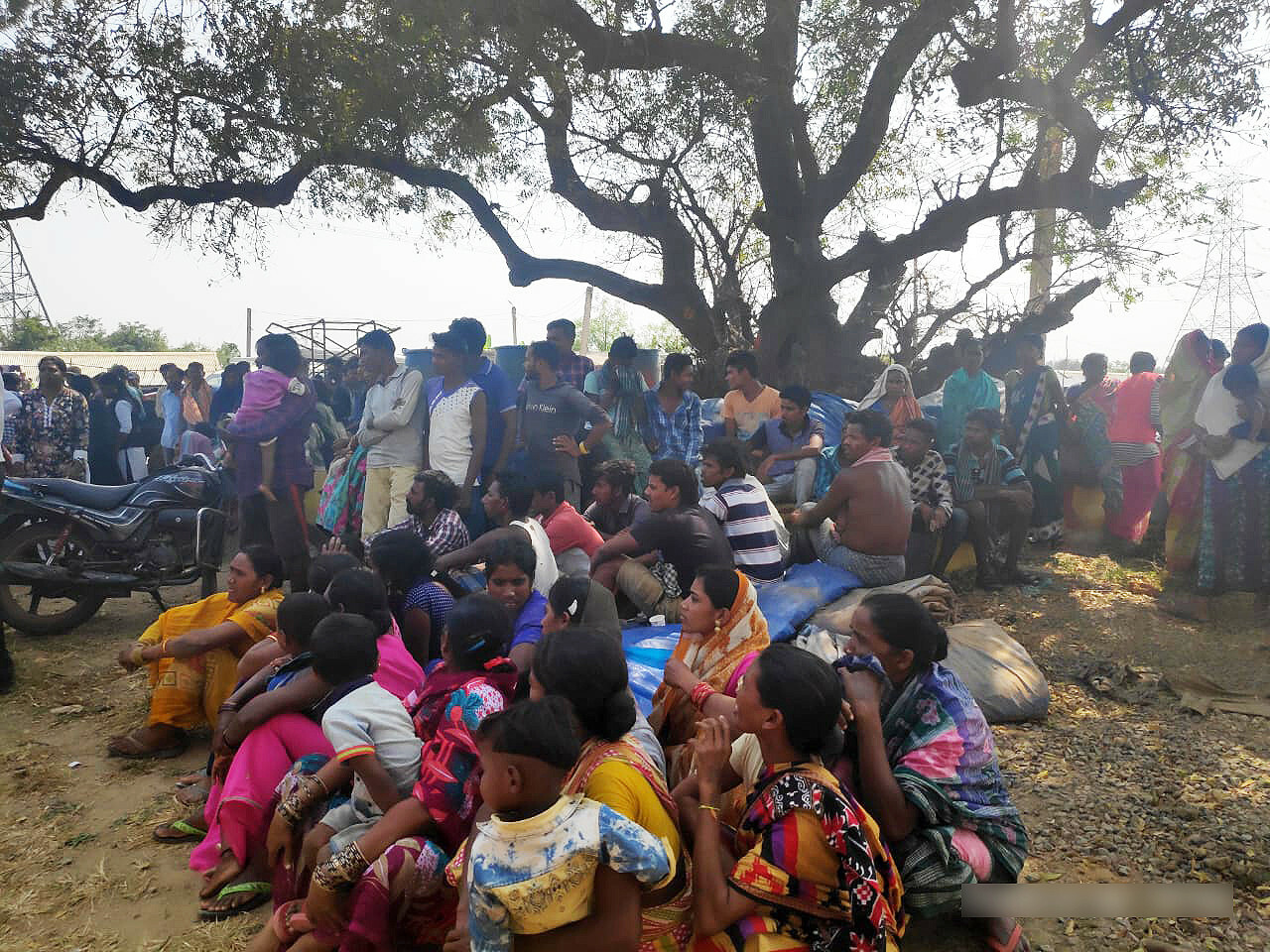Local Authorities Take the Lead to Rescue 247 from Bondage at a Brick Kiln

CHENNAI, INDIA – On February 18, proactive government officials in Southern India led a rescue operation to free 247 people—including 50 children—from a life of bonded labour slavery at a massive brick kiln.
This case is significant not only for the number of victims freed, but also for the best-in-class service officials provided to these vulnerable families along the way.
It all began in late December 2019, when the local Revenue District Officer (RDO)—who oversees businesses in the district—noticed a group of migrant labourers working in poor conditions at a kiln in her area. She contacted IJM for advice and requested help inspecting the kiln. In January, the RDO was able to interview a few of the labourers, but the kiln owner moved the others before she could learn more.
A few weeks later, one of the victims contacted IJM staff and shared about the long hours and abusive conditions they faced every day. We passed these details to the government’s One Stop Crisis Team (OSCT), who planned a rescue operation the very next day.
IJM-trained authorities returned to the kiln to find hundreds of children, women and men labouring in gruelling conditions. Families lived in crude makeshift houses and had no proper water or toilets. They could never leave the kiln’s boundary. Even young children were forced to work long hours alongside their parents.
These families had been trafficked from the states of Odisha and Chhattisgarh, and were forced to work long hours to repay “advances” of 15,000–50,000 rupees the owner had given them (approximately A$300 to A$1080). Predatory business owners often charge very high interest rates on these loans to keep poor families working for years.
During the operation, officials also found a room full of medical supplies, antibiotics, vials and syringes. They suspect the kiln owner employed two fake doctors to administer care to the labourers so they would keep working. Police have arrested these doctors and taken them into custody.
Officials showed great sensitivity toward the labourers and worked quickly to organise them and bring them to safety. As they took each family’s statement, officials provided medical check-ups, warm meals and safe housing for the next several days. Once the rescue process was completed, they arranged trains and buses to take the rescued families back to their home villages.
“This rescue displays the impact of effective collaboration between government departments,” says Merlin Freeda, IJM’s director of operations in Chennai. “Despite the heavy work involved in attending to the needs of 247 people, government officials ensured that holistic care was provided. Within 24 hours of the first inspection, the first set of labourers were already on their way home, without IJM having to intervene.”
Overall, this case was a huge success for the local government, as 10 different departments collaborated effectively to bring all of the 247 victims to safety. All of this was done without IJM’s direct involvement.
Ms. Saraswati, a leader of the District Legal Services Authority involved in the rescue, shared, “This rescue was a warning bell. The One Stop Crisis Team will continue such inspections to set a regulatory mechanism. We will ensure that brick kilns operation with proper licenses and adhere to labour laws, and that labourers can access proper safety and hygiene at the work-site and would regularly be paid adequate minimum wages through bank accounts.”
Read more about this operation in The Times of India.
About One Stop Crisis Teams: These cross-functional teams are designed to address and prevent human trafficking by proactively inspecting worksites, rescuing victims, helping survivors access government benefits, and raising awareness in vulnerable communities. Each team includes a lawyer, a paralegal, a social worker and an anti-trafficking police officer, along with representatives from four government departments that address trafficking or bonded labour slavery. IJM helped establish OSCTs across all districts of Tamil Nadu in 2019.